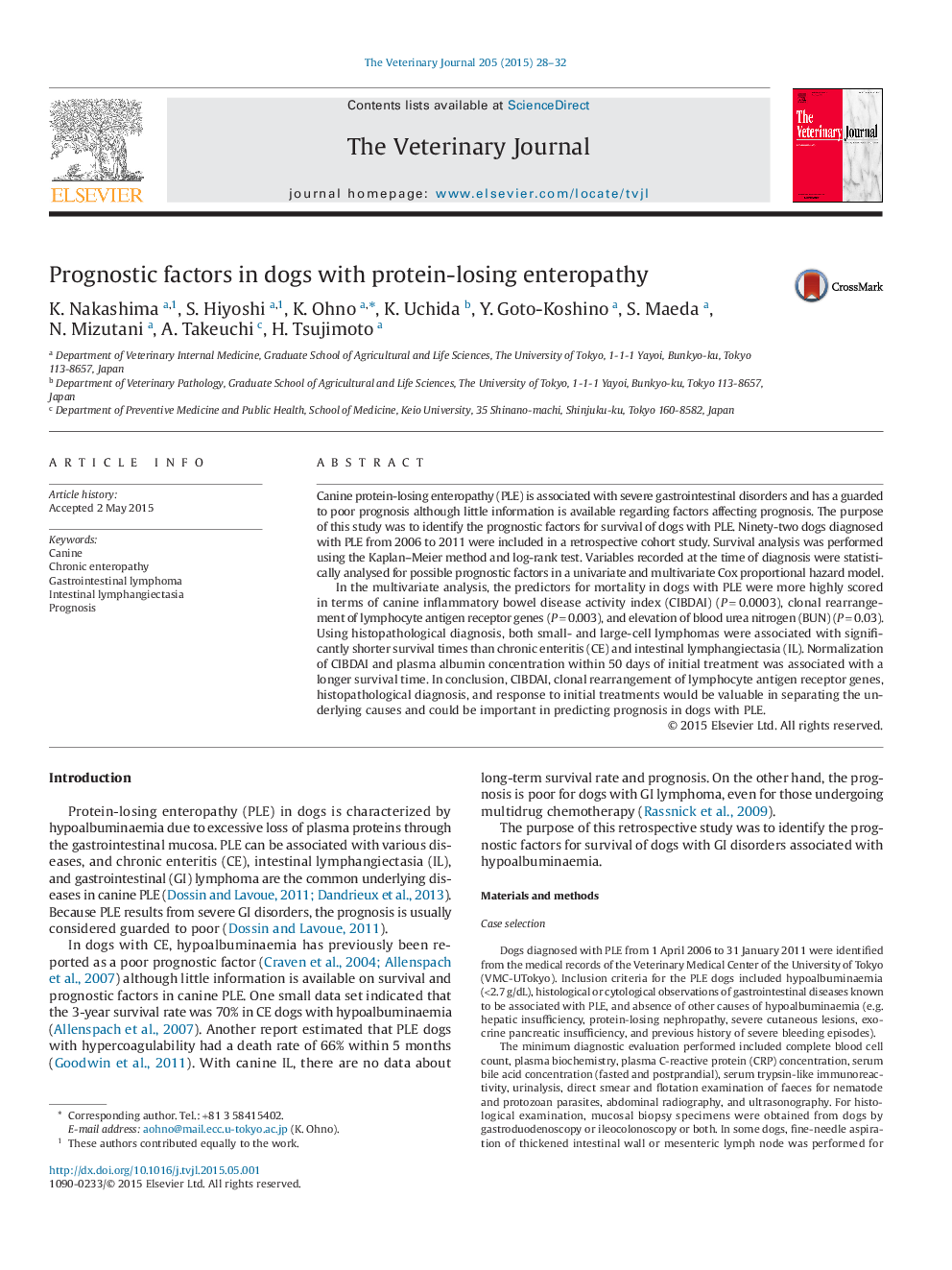| کد مقاله | کد نشریه | سال انتشار | مقاله انگلیسی | نسخه تمام متن |
|---|---|---|---|---|
| 5797391 | 1111750 | 2015 | 5 صفحه PDF | دانلود رایگان |
- Prognostic factors for dogs with protein-losing enteropathy were investigated.
- Small-cell lymphoma had shorter survival than chronic enteritis and lymphangiectasia.
- Clonal expansion of lymphocytes was associated with shorter survival time.
- Response to initial treatment within 50 days was associated with longer survival time.
- The canine inflammatory bowel disease activity index was a valuable prognostic factor.
Canine protein-losing enteropathy (PLE) is associated with severe gastrointestinal disorders and has a guarded to poor prognosis although little information is available regarding factors affecting prognosis. The purpose of this study was to identify the prognostic factors for survival of dogs with PLE. Ninety-two dogs diagnosed with PLE from 2006 to 2011 were included in a retrospective cohort study. Survival analysis was performed using the Kaplan-Meier method and log-rank test. Variables recorded at the time of diagnosis were statistically analysed for possible prognostic factors in a univariate and multivariate Cox proportional hazard model.In the multivariate analysis, the predictors for mortality in dogs with PLE were more highly scored in terms of canine inflammatory bowel disease activity index (CIBDAI) (Pâ=â0.0003), clonal rearrangement of lymphocyte antigen receptor genes (Pâ=â0.003), and elevation of blood urea nitrogen (BUN) (Pâ=â0.03). Using histopathological diagnosis, both small- and large-cell lymphomas were associated with significantly shorter survival times than chronic enteritis (CE) and intestinal lymphangiectasia (IL). Normalization of CIBDAI and plasma albumin concentration within 50 days of initial treatment was associated with a longer survival time. In conclusion, CIBDAI, clonal rearrangement of lymphocyte antigen receptor genes, histopathological diagnosis, and response to initial treatments would be valuable in separating the underlying causes and could be important in predicting prognosis in dogs with PLE.
Journal: The Veterinary Journal - Volume 205, Issue 1, July 2015, Pages 28-32
